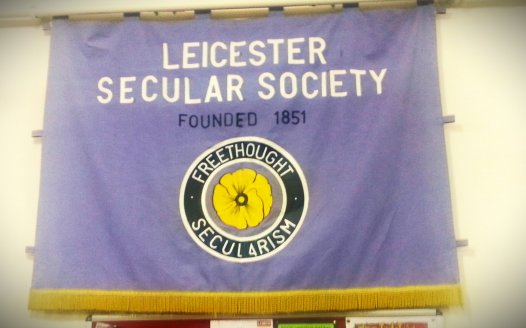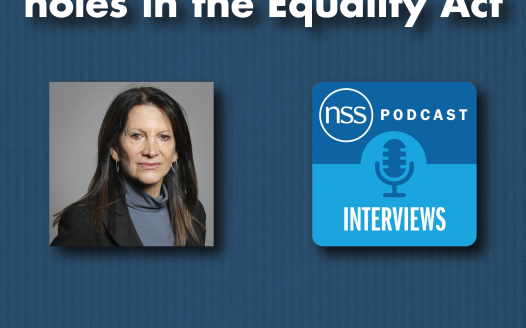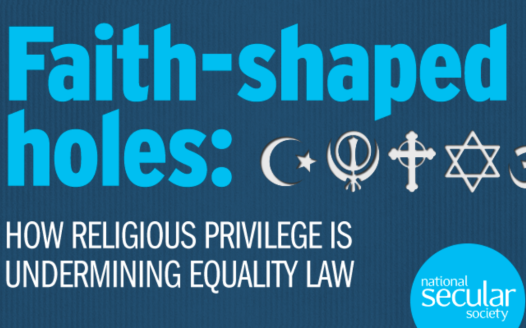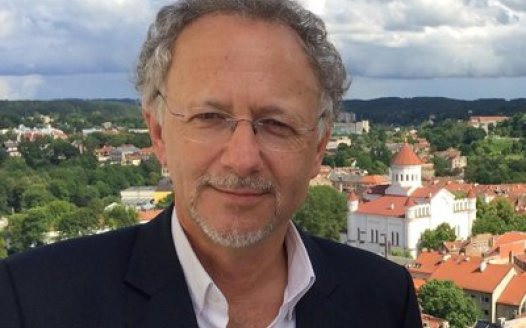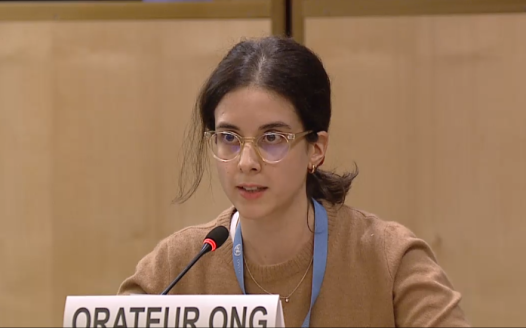Government must outlaw caste discrimination, says NSS
Posted: Tue, 19th Sep 2017
The National Secular Society has promised to "actively support" efforts to outlaw caste discrimination after calling on the Government to legislate in response to an official consultation.
In its submission to the consultation, which closed yesterday, the NSS said a new law was the only way of providing those discriminated against with an effective remedy.
The Government launched the consultation in March. It said its goal was to find out "whether legal protection against this form of discrimination is best ensured by developing case law or by making caste explicitly an aspect of race" under the 2010 Equality Act.
In 2013 Parliament ordered the Government to legislate and the UN has repeatedly called on it to pass legislation as a treaty obligation. NSS executive director Keith Porteous Wood, who last month wrote that the Government was "in hock to the increasingly powerful Hindu right", said the consultation appeared to be a tactic designed to evade its responsibility.
"Our meeting with the Department responsible suggests the consultation was seeking to flush out legal obstacles to the Government continuing to ignore Parliament and the UN.
"The language used and concerns expressed in the consultation seemed to be directed at those of the so-called 'high caste'. It is difficult to conclude other than that they are being invited to veto protection against those vulnerable to caste-based discrimination."
The consultation invited "views from all those potentially affected by a legal prohibition against caste discrimination". But pro-legislation campaigners say it was so legally complex that few other than lawyers or specialist campaigners would have understood it.
In its submission, the NSS said relying on the courts would be unsatisfactory because of the message the Government's actions were sending to the judiciary. It referred to the case of Permila Tirkey, where the judge specifically declined to develop case law. It said cases were unpredictable and complainants, who were unlikely to be wealthy, could face financial ruin.
"Legislating is easy, quick and precise," it added. "It will declare formally that such discrimination is against public policy, which will be a deterrent. It will enable cases to be brought cheaply and with certainty. It will also conform to Parliament's will and that of the UN under our treaty obligations. We suggest that caste be neither classified as a subset of race nor ethnic origin."
The NSS has also provided the Government with a legal opinion which it commissioned and material from the UN and EU, in an attempt to prompt legislation.
Caste is a hereditary social hierarchy, mainly but not exclusively practised by Hindus. It allows those at the bottom called Dalits – so-called "untouchables" – only to undertake the most menial of tasks.
Many of Britain's Dalits say those of so-called higher castes accuse them of polluting everything they touch. Some say they have been taunted in schools, abused in shops and humiliated at work by colleagues, who refused to drink from the same tap or share kitchen utensils with them.
The NSS has been agitating for legislation against caste discrimination since helping to organise the first international conference on Dalits in 2009, out of which came the Conway Hall Declaration. The society pressed for caste discrimination to be included in the Equality Act 2010, the last major piece of legislation before the Labour Government fell. A power was included to allow a Minister to introduce it without further primary legislation.
Since 2010 the Government has opposed such legislation. It has argued that education was sufficient and that the development of case law would provide legal protection. More recently it has said legislation would be disproportionate, despite a Government-commissioned report identifying caste discrimination in the UK in employment, education and the provision of goods and services. These activities are all covered by the Equality Act for other protected characteristics.
Mr Porteous Wood said the Government was failing to translate its rhetoric into action.
"On the steps of No. 10 on Mrs May's first day in office she expressed touching concern for those disadvantaged by their background, for example race. Sadly, these words have not been translated into action on so-called caste discrimination. Her Government remains intransigent by failing heartlessly to provide legal protection. It seems that not upsetting a trade deal with India and keeping so-called high caste Hindus on board is more important."
He added that it was "quite likely" the Government would face a judicial review to challenge its stance, and said the NSS would "actively support" such efforts.
The campaign to outlaw caste discrimination in Britain has also gained the support of Sir Anish Kapoor, the Mumbai-born British sculptor. Speaking to the Sunday Times, Kapoor said: "It is outlawed in India, so why not in Britain?"
"We love to think of Britain as progressive," he added. "It would be disgraceful if the government bows to pressure and does not act on this key area of human rights."
Discuss this story on Facebook.
You can now read the NSS response to the consultation here.


